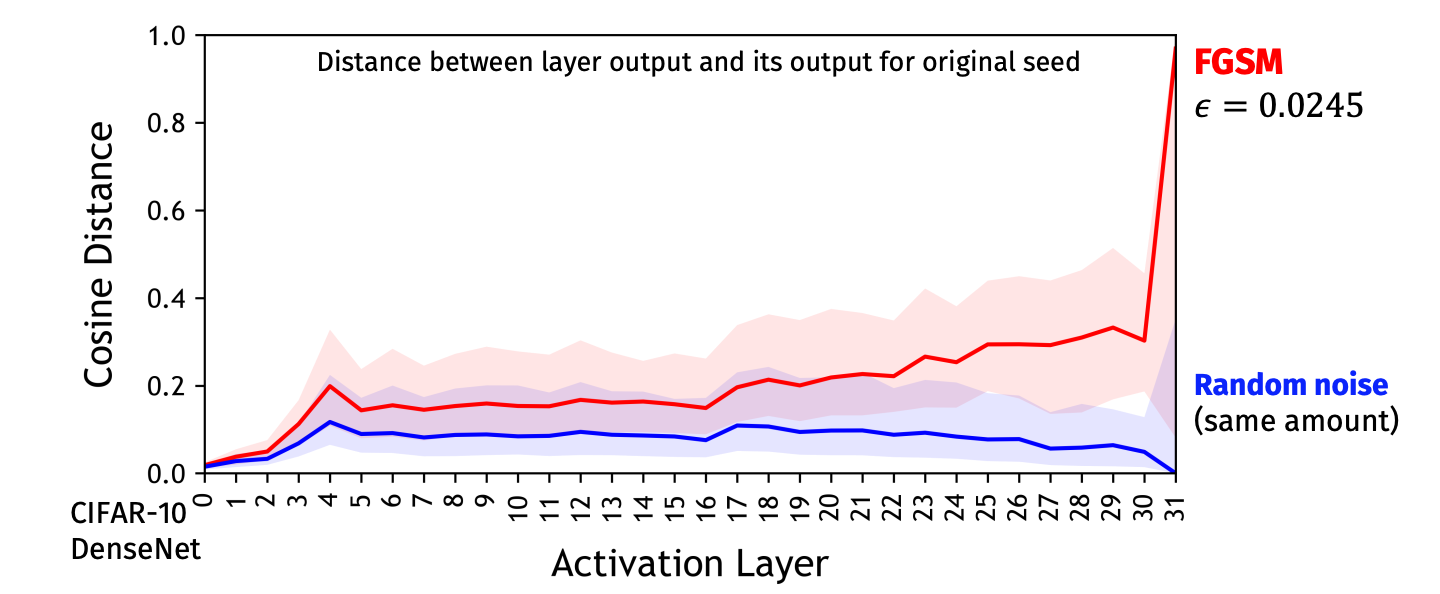Voting Security
I was interviewed for a local news story by Daniel Grimes on election security: UVA cybersecurity expert: Virginia is one of the safer states to cast a ballot, NBC 29 News, 21 October 2020.
How AI could save lives without spilling medical secrets
I’m quoted in this article by Will Knight focused on the work Oasis Labs (Dawn Song’s company) is doing on privacy-preserving medical data analysis: How AI could save lives without spilling medical secrets, MIT Technology Review, 14 May 2019.
“The whole notion of doing computation while keeping data secret is an incredibly powerful one,” says David Evans, who specializes in machine learning and security at the University of Virginia. When applied across hospitals and patient populations, for instance, machine learning might unlock completely new ways of tying disease to genomics, test results, and other patient information.
A Plan to Eradicate Stalkerware
Sam Havron (BSCS 2017) is quoted in an article in Wired on eradicating stalkerware:
The full extent of that stalkerware crackdown will only prove out with time and testing, says Sam Havron, a Cornell researcher who worked on last year’s spyware study. Much more work remains. He notes that domestic abuse victims can also be tracked with dual-use apps often overlooked by antivirus firms, like antitheft software Cerberus. Even innocent tools like Apple’s Find My Friends and Google Maps’ location-sharing features can be abused if they don’t better communicate to users that they may have been secretly configured to share their location. “This is really exciting news,” Havron says of Kaspersky’s stalkerware change. “Hopefully it will spur the rest of the industry to follow suit. But it’s just the very first thing.”
Deep Fools
New Electronics has an article that includes my Deep Learning and Security Workshop talk: Deep fools, 21 January 2019.
A better version of the image Mainuddin Jonas produced that they use (which they screenshot from the talk video) is below:

Center for Trustworthy Machine Learning

The National Science Foundation announced the Center for Trustworthy Machine Learning today, a new five-year SaTC Frontier Center “to develop a rigorous understanding of the security risks of the use of machine learning and to devise the tools, metrics and methods to manage and mitigate security vulnerabilities.”

The Center is lead by Patrick McDaniel at Penn State University, and in addition to our group, includes Dan Boneh and Percy Liang (Stanford University), Kamalika Chaudhuri (University of California San Diego), Somesh Jha (University of Wisconsin) and Dawn Song (University of California Berkeley).
Artificial intelligence: the new ghost in the machine
Engineering and Technology Magazine (a publication of the British [Institution of Engineering and Technology]() has an article that highlights adversarial machine learning research: Artificial intelligence: the new ghost in the machine, 10 October 2018, by Chris Edwards.
Although researchers such as David Evans of the University of Virginia see a full explanation being a little way off in the future, the massive number of parameters encoded by DNNs and the avoidance of overtraining due to SGD may have an answer to why the networks can hallucinate images and, as a result, see things that are not there and ignore those that are.
…
He points to work by PhD student Mainuddin Jonas that shows how adversarial examples can push the output away from what we would see as the correct answer. “It could be just one layer [that makes the mistake]. But from our experience it seems more gradual. It seems many of the layers are being exploited, each one just a little bit. The biggest differences may not be apparent until the very last layer.”
…
Researchers such as Evans predict a lengthy arms race in attacks and countermeasures that may on the way reveal a lot more about the nature of machine learning and its relationship with reality.Violations of Children’s Privacy Laws
The New York Times has an article, How Game Apps That Captivate Kids Have Been Collecting Their Data about a lawsuit the state of New Mexico is bringing against app markets (including Google) that allow apps presented as being for children in the Play store to violate COPPA rules and mislead users into tracking children. The lawsuit stems from a study led by Serge Egleman’s group at UC Berkeley that analyzed COPPA violations in children’s apps. Serge was an undergraduate student here (back in the early 2000s) – one of the things he did as a undergraduate was successfully sue a spammer.
Cybersecurity Summer Camp
I helped organize a summer camp for high school teachers focused on cybersecurity, led by Ahmed Ibrahim. Some of the materials from the camp on cryptography, including the Jefferson Wheel and visual cryptography are here: Cipher School for Muggles.
Cybersecurity Goes to Summer Camp. UVA Today. 22 July 2018. [archive.org]Earlier this week, 25 high school teachers – including 21 from Virginia – filled a glass-walled room in Rice Hall, sitting in high adjustable chairs at wheeled work tables, their laptops open, following a lecture with graphics about the dangers that lurk in cyberspace and trying to figure out how to pass the information on to a generation that seems to share the most intimate details of life online. “I think understanding privacy is important to that generation that uses Facebook and Snapchat,” said David Evans, a computer science professor who helped organize the camp. “We hope to give teachers some ideas and tools to get their students excited about learning about cryptography, privacy and cybersecurity, and how these things can impact them.”

